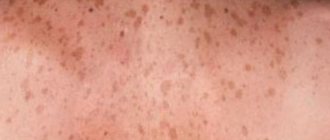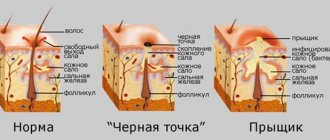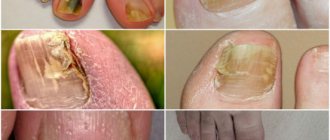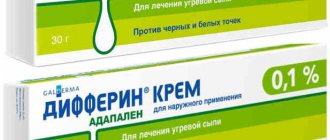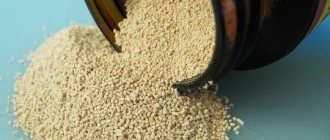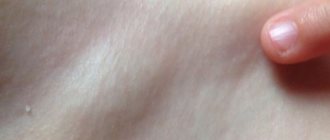Causes of night sweats
It is human nature to sweat, but sleeping people normally have a lower body temperature, so there is no significant sweating. The appearance of excessive sweating (night hyperhidrosis) is a sign of:
- unfavorable influence of external factors;
- the presence of certain diseases;
- hormonal disorders.
External factors that cause increased sweating during sleep include:
- Air temperature and humidity level in the room. A comfortable temperature for sleeping in the bedroom is from 18 to 20 °C, relative air humidity should not exceed 70%. At higher temperatures and humidity, the body of even a completely healthy woman can react with increased sweating, thus preventing overheating.
- Incorrectly selected blanket. It may be too warm for the air temperature in a particular bedroom (for example, a well-warming blanket made of natural wool is not suitable for comfortable sleep at 22°C) or contain synthetic padding and other artificial materials that do not allow air to pass through and provoke sweating. Thermoregulation can also be affected by sheets or pajamas made of synthetic fibers, as well as synthetic padding pillows.
- Drinking alcoholic beverages, coffee, hot and spicy dishes in the evening, which increase blood circulation and activate sweating. Difficult-to-digest foods containing large amounts of proteins, fats and carbohydrates can also increase body temperature at night.
- A stressful situation, a state of anxiety, which causes an increase in adrenaline in the blood. Unused adrenaline during the day is released along with sweat during sleep.
If the factors listed above are absent, and profuse sweating persists, the woman should consult a doctor to determine the cause and eliminate the pathology.
A blanket that is too warm or synthetic may cause nighttime hyperhidrosis.
The effect of diet on sweating
Eating a number of foods affects the secretion of skin glands, causing them to work more actively, especially at night. These include:
- hot seasonings - pepper, ginger;
- fatty meat, fish;
- citrus fruit;
- sweets, chocolate;
- strong coffee, tea;
- colored lemonades, mineral waters;
- salty canned food.
Even the temperature of the food can affect the condition - the hotter the food or drink, the more likely it is to sweat.
Important! Smoking and increased consumption of strong alcoholic beverages can provoke female sweating at night.
Nocturnal hyperhidrosis as a symptom of the disease
Increased sweating during sleep is often a symptom of both widespread, clinically mild infectious diseases and dangerous diseases:
- ARVI is a group of acute respiratory diseases that are caused by pneumotropic viruses. These widespread diseases include respiratory syncytial, rhinovirus, adenovirus and other clinically and morphologically similar infections accompanied by catarrhal symptoms. Acute respiratory viral infections in most cases are accompanied by an increase in body temperature, resulting in severe sweating.
- Infectious mononucleosis is a disease characterized by changes in blood composition (atypical mononuclear cells that are absent normally are detected), damage to the pharynx, enlargement of the liver, spleen and lymph nodes. The disease is caused by the Epstein-Barr virus.
- Pneumonia is an inflammation of the lung tissue that is caused by viruses, bacteria and fungi. It can be hospital-acquired or community-acquired, it can be accompanied by impaired immunity, it can be primary and secondary. Separately, we can distinguish eosinophilic pneumonia, which is associated with the accumulation of eosinophils (a type of white blood cell) in the alveoli.
- Lung abscess is a purulent-destructive limited process in the lungs, in which one or more cavities containing pus form in the lung tissue. The causative agent is a variety of microorganisms that penetrate the lungs with a decrease in general and local immunity, due to chronic diseases, with long-term use of glucocorticoids, immunosuppressants and cytostatics.
- Endocarditis is an inflammation of the inner lining of the heart, which in most cases is a private manifestation of other diseases (tuberculosis, brucellosis, etc.). Subacute bacterial endocarditis, caused by streptococcus (which constitutes the normal flora of the respiratory tract), is distinguished separately.
- Fungal infections - visceral (systemic) candidiasis, which affects internal organs, aspergillosis, etc.
- Tuberculosis is a disease affecting the lungs and less commonly other organs, which is caused by Koch bacilli. Usually, after infection, the disease occurs in a latent form, sometimes (in 1/10 cases) moving into the active phase. Sweating is a constant but nonspecific sign of the disease.
- HIV infection is a slowly progressive disease that is caused by various strains of the human immunodeficiency virus.
Night sweats in women can occur when:
- Hyperthyroidism is a syndrome that occurs with hyperfunction of the thyroid gland and is accompanied by an increase in the level of hormones T3 and T4. It can be primary (disorders associated with the functioning of the thyroid gland), secondary (associated with pathology of the pituitary gland) and tertiary (disorders associated with the functioning of the hypothalamus). Develops with toxic diffuse goiter (Graves' disease) or nodular toxic goiter (Plummer's disease), subacute thyroiditis, with uncontrolled intake of thyroid hormones, with pituitary tumors characterized by excessive secretion or ovarian teratomas, with excessive administration of iodine.
- Diabetes mellitus is a group of endocrine diseases that are associated with absolute or relative insulin deficiency caused by impaired glucose absorption. With a persistent increase in blood sugar, water-salt, carbohydrate, protein, fat and mineral metabolism is disrupted. The disease is characterized by a chronic course.
- Diabetes insipidus is a rare disease that occurs when the function of the pituitary gland or hypothalamus is impaired. It manifests itself as an increase in the amount of urine (polyuria) and severe thirst (polydipsia), develops with tumors of the hypothalamic-pituitary system, as a consequence of traumatic brain injury, primary tubulopathy, and can be hereditary.
- Digestive disorders (biliary dyskinesia, gastritis, etc.).
- Sleep apnea syndrome is a condition that is accompanied by periodic stops in breathing during sleep, often leading to awakening. It can be obstructive (occurs when the upper respiratory tract is narrowed) and central (occurs when the respiratory center in the brain is depressed).
- Chronic fatigue syndrome, which is manifested by a prolonged feeling of fatigue, which even prolonged rest does not help get rid of. This syndrome occurs when there is unbalanced emotional, intellectual and physical stress, which leads to the development of neurosis of the central regulatory centers of the autonomic nervous system.
- Vegetative-vascular (neurocircular) dystonia, which is a complex of symptoms that arise from autonomic dysfunction of the cardiovascular system. May occur only in stressful situations or be present all the time. It is provoked both by various diseases (observed in chronic infections, cervical osteochondrosis, etc.), and by overwork, sudden climate change and other similar factors.
Increased sweating in women at night can also be a consequence of rheumatological diseases (temporal arteritis and Takayasu arteritis), malignant neoplasms (Hodgkin's disease, leukemia).
Increased sweating can be caused by taking certain medications (OCs, antibiotics, antidepressants, etc.).
Increased sweating at night can be a symptom of various diseases
Treatment
In addition to targeted therapy, when identifying any disease that causes you to sweat profusely, you should:
- Use deodorants, antiperspirants, talcum powder to eliminate visible manifestations of hyperhidrosis;
- Maintain a daily routine, rest, and take care of personal hygiene;
- Balance your diet, excluding “provocative” foods;
- Avoid stress, anxiety, anxiety, and if necessary, take sedatives;
- Pay attention to medications that reduce sweat production;
- Take a course of physiotherapy (electrophoresis, soothing baths, ionotherapy);
- Discuss with a specialist the possibility of reducing the innervation of sweat cells using Botox or Dysport injections;
- Consider destroying some of the sweat cells with a laser or surgery (in severe cases).
Excessive sweating in women can be caused by physical and mental stress, hormonal fluctuations, endocrine disorders, internal pathologies, viral and fungal diseases. To eliminate a symptom, it is necessary to establish the cause and choose the right treatment.
Night sweats due to hormonal imbalances
Severe sweating at night in women is often a sign of hormonal changes inherent in the female body. Night sweats increase:
- At some stages of the menstrual cycle. Sweating increases with an increase in estrogen, a hormone produced mainly in the ovaries. Estrogens include estradiol (produced in large quantities before menopause), estrone (the dominant hormone during menopause) and estriol (produced by the placenta during pregnancy). Estrogens and progesterone influence the activity of the hypothalamus, in which the thermoregulatory center is located, therefore, in a certain proportion of women, when the amount of estrogen and progesterone in the blood changes before menstruation, increased sweating occurs at night.
- During pregnancy, during which the placenta produces a large amount of progesterone and estriol, which affects the activity of the temperature center. Especially often, night sweats bother absolutely healthy pregnant women in the first trimester, when the body is still adapting to the new condition. After the baby is born, hormonal balance is restored and excess sweating disappears on its own.
- During menopause, which is accompanied by a sharp decrease in estrogen production and the associated decrease in vasomotor and thermoregulatory instability. Hormonal imbalance is accompanied by “hot flashes” (feelings of heat), sleep disturbances (can itself cause sweating), sweating that is not related to the actual ambient temperature, etc.
Changes in hormonal balance, causing increased sweating, are also observed with inflammatory diseases of the ovaries, puberty, breastfeeding and after an abortion or childbirth.
Night sweats are a common companion in the first trimester of pregnancy.
Physiological necessity, not an annoying feature
Sweating is often perceived extremely negatively by women and is associated with discomfort, a feeling of loss of control over the body, and even a blow to self-esteem. However, nature has rewarded us with this protective reaction, without which it would be impossible to survive:
- Sweating is the body's cooling system. Thanks to it, a person can exist in such a variable temperature range. Thus, the inhabitants of the Sahara spend the entire day in an ambient temperature above 50°C, and during fever the body cools down through the excretion and evaporation of fluid (sweat).
- Removing waste products is a function that the sweat glands can take on in extreme cases, when the liver and kidneys cannot cope with the job. In patients with chronic renal failure, sweat acquires a specific odor due to the fact that it removes excess urea formed.
- Skin surface protection system - together with sebum, sweat forms a thin protective layer, a hydro-lipid mantle, which prevents the penetration of pathogens. The skin of the feet and palms is devoid of sebaceous glands - it is moisturized and protected exclusively by sweat.
With the exception of hereditary characteristics, excessive sweating is an indicator of external or internal ill-being to which the body reacts. If you wake up “wet”, you need to look for the reason! Hyperhidrosis also has a place in the international classification of diseases. Night sweats are included in the concept of “hyperhidrosis, unspecified” (code R 61.9), a temporary diagnosis that a doctor can make until the cause is determined.
How to deal with night sweats
In cases where night sweats in women are not associated with hormonal imbalance, to eliminate excessive sweating it is recommended:
- Maintain proper nutrition - avoid eating foods that cause sweating at least 3 hours before bedtime, and avoid drinking coffee and alcohol in the evening. Drink herbal teas with ginger and honey that soothe the nervous system at night.
- Do not eat large quantities of food during dinner, as an overfilled stomach can put pressure on the diaphragm in a horizontal position and provoke gastroesophageal reflux, which causes excessive sweating.
- Do not consume hot food or drinks at night, which speed up your metabolism and can cause night sweats.
- Do not engage in vigorous physical activity several hours before bedtime - physical activity not only provokes sweating in itself, but also causes stimulation of the nervous system, which is also the cause of sweating in overly sensitive people.
- Take a contrast shower before bed. Water procedures should begin with dousing with warm water, which helps the pores open (this way the body gets rid of excess moisture), and end with dousing with cool water, which closes the pores.
- Take a warm bath with an infusion of herbs (you can use sage, oak bark, chamomile, St. John's wort, walnut leaves, strawberry leaves, mint, rose petals, etc.). You can also add pine needles, essential oils (tea tree oil, coconut oil, etc.) or sea salt. Such baths can be combined with taking sage decoction or motherwort infusion internally - this helps the nervous system relax and reduces sweating during sleep.
For night sweats, it is recommended to take medicinal baths before bed.
- After water procedures, apply antiperspirants to a clean, dry body (antiperspirants containing 15-30% aluminum salts are more effective). Products containing large amounts of aluminum salts block pores and prevent sweating not only at night, but also throughout the next day. It is not recommended to use these products during pregnancy or kidney disease, immediately after shaving the armpits, or if the skin is irritated.
- Apply talc to clean, dry skin - this harmless powder, due to its ability to absorb moisture, will reduce the occurrence of night sweats.
- Ensure a constant flow of air in the bedroom and try to adjust the temperature to optimal values.
- Choose a light blanket and pillow made from natural materials, change bed linen (use linen and other natural fabrics).
- Choose sleepwear only from natural fabrics (for example, you can use 100% cotton).
Since pregnant and lactating women are not recommended to use antiperspirants, they can replace these products with organic deodorants. You can also wipe the skin with solutions - a soda solution or a solution prepared from 9% vinegar, salt and boiled water (1 tablespoon of salt and vinegar per 0.5 liter of water).
For nighttime hyperhidrosis, it is important to choose the right bedding
Folk remedies
Some folk remedies can help reduce sweating. The most effective of them are infusions of chamomile, walnut leaves and oak bark.
Chamomile for treating night sweats
An infusion of chamomile flowers is prepared by pouring three tablespoons of dried raw materials with a liter of boiling water. After an hour, add a tablespoon of baking soda to the solution. Use the mixture to wipe the armpits as needed.
Oak bark tincture
A tincture of oak bark can be prepared by pouring 1/2 teaspoon of the substance into 100 ml of boiling water (half a glass). Add the juice of half a lemon. After cooling, wipe the problem areas with the infusion.
Alcohol tincture of walnut leaves
Alcohol tincture of walnut leaves also helps with the problem of night sweats. The raw materials are poured with chilled vodka in a ratio of 1:10. The strained mixture is used to wipe the problem areas as needed.
When is it necessary to see a doctor?
Sometimes self-medication and lost time have dire consequences. A woman needs to seek medical help in the following cases:
- Cold sweat is accompanied by high body temperature. In addition to colds, these may be problems with the adrenal glands, an overdose of medications, a period of exacerbation of chronic pathologies;
- The sweat is sticky and cold - possible causes include myocardial infarction, acute intoxication, problems with the thyroid gland.
- Sweating along with dizziness - damage to the inner ear, severe forms of infectious diseases.
When menopause occurs, it is recommended to consult a specialist and undergo a course of hormone therapy, which will regulate physiological processes in the body.
Only a comprehensive examination will clarify the picture and make it possible to identify pathology. The specialist will need to carefully understand the patient’s medical history and conduct a series of tests. If attacks of hyperhidrosis become chronic, a visit to the doctor is required.
Women don't tend to sweat: 5 interesting facts
- Typically, women who are not actively involved in sports sweat less than men. According to various sources - 2 times less. From a hygiene point of view, this is not bad, but the risk of overheating in the heat and getting heatstroke increases. Active exercise eliminates gender differences in the ability to sweat. On average, a person produces 300-800 ml of sweat per day. This figure can increase 20 times with intense physical activity, hot weather, or the development of a disease, the symptom of which is hyperhidrosis.
- Despite the fact that in general women sweat less than men, they have more sweat glands per unit area.
- Women have better developed apocrine sweat glands. They are located in the groin, anus, genitals, armpits, around the navel, nipples and begin to work from puberty. With the onset of menopause, their activity ceases. These are sexual scent glands. They also react to stress (psychogenic sweating) and are practically not involved in thermoregulation. The sweat they produce can be very odorous, creating a peculiar “smell of a woman.” The rest of the numerous glands are called eccrine glands. Almost the entire surface of the body is rich in them.
- Feminine smell of sweat. The secretion of apocrine sweat glands differs from eccrine glands, where the basis is only water and salts. A mass of biologically active substances, pheromones, organic acids, cholesterol, form a whitish secretion, the composition of which may vary depending on the menstrual cycle. With her scent, a woman attracts or repels the opposite sex, depending on her readiness to conceive. However, in modern society, the mechanisms of reproductive behavior are not always subject to the action of pheromones.
- Hyperhidrosis is psychologically difficult for the fair half, greatly reducing the quality of life. So, at the age of 23, American Alice Brown decided to undergo surgery - endoscopic thoracic sympathectomy. From the age of 12, she dreamed of getting rid of the severe sweating of her palms that tormented her, saying goodbye to her dream of becoming an artist. Constantly wet hands deprived her of friends and her favorite activity. Alice took a risk because the side effects after the operation could be fatal. Everything ended quite well. The girl got rid of the problem, gaining a “second wind.” However, over time, compensatory sweating appeared in other parts of the body, which still did not stop her from drawing.
Maybe it will be useful for you to know, read: - How to get rid of odor in shoes.
